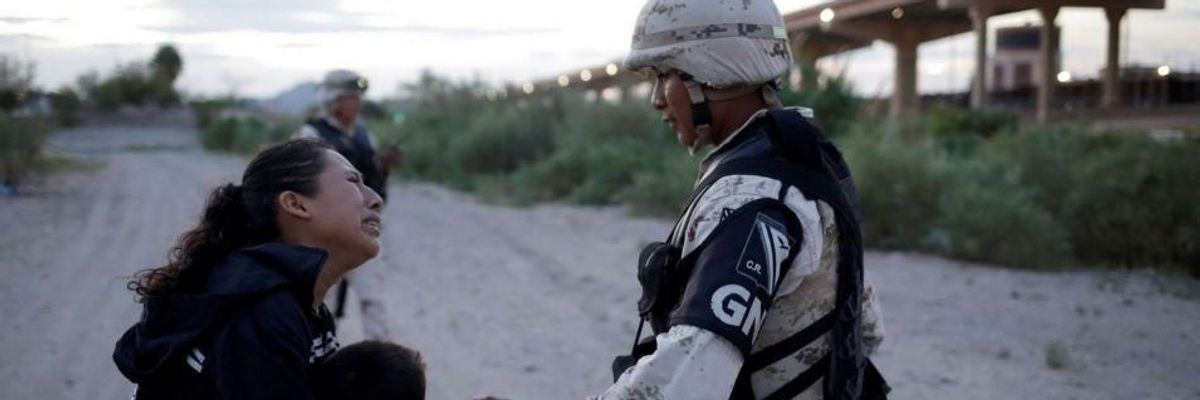This October marked the first month in 30 years that the U.S. resettled zero refugees, according to State Department records.
World Relief, which had planned to help more than 100 asylum-seekers reunite with family members already in the U.S. last month, reported that October was the first time since the group began keeping records of refugee resettlement that the U.S. has accepted none of the 26 million people who have fled violence and oppression in their home countries.
"It's a shame that at a time when we're facing the world's worst refugee crisis since World War II, and we're seeing the ongoing new displacement of Syrians, Rohingya, and others, that the U.S. has accepted zero refugees this month, for the first time in our records," said Jenny Yang, vice president of advocacy and policy at World Relief, in a statement released last week. "We should be doing more, not less, and keeping the door open to protect the persecuted who have no safe place to go."
Other critics, including Rep. Barbara Lee (D-Calif.) and the international organization Human Rights First, lamented the news as "shameful" and "outrageous."
The complete lack of asylum extended to refugees by the State Department in October is the result of President Donald Trump's delayed signing of an order, announced in September, capping refugees at 18,000 in 2020--the lowest number since 1980, when the U.S. resettlement program was established.
An ongoing State Department freeze on refugee admissions resulted in hundreds of canceled flights for asylum-seekers planning to come to the U.S. But Los Angeles Times columnist Scott Martelle on Wednesday wrote that the temporary freeze can hardly be written off as a simple bureaucratic oversight.
"This isn't just heartbreaking--it's unjust. Withdrawing our troops from Syria meant unleashing chaos in the region and forcing even more people to flee their homes. To refuse to open our doors is to abdicate responsibility for a scenario to which we as a nation have contributed."
--Scott Arbeiter, World Relief
"The fine details of bureaucratic delay are secondary to the bigger policy issue: the Trump administration has actively sought to throttle back immigration to the U.S., including desperate refugees (many of whom are seeking to reunite with families already here) and would-be lawful immigrants who can't prove they can afford to pay for healthcare when they arrive," Martelle wrote.
Trump's anti-immigration policies have resulted in at least 20,000 asylum seekers and migrants being sent to Mexico where they're forced to wait for their immigration proceedings to begin. Under the policy, thousands of people have been separated from loved ones and subjected to violence and other abuse.
World Relief noted that in addition to turning away asylum-seekers from Central American countries. The administration's rejection of refugees in October followed Trump's withdrawal of troops from Syria, which made way for a Turkish offensive against the Kurds.
"This isn't just heartbreaking--it's unjust," said Scott Arbeiter, president of World Relief. "Withdrawing our troops from Syria meant unleashing chaos in the region and forcing even more people to flee their homes. To refuse to open our doors is to abdicate responsibility for a scenario to which we as a nation have contributed."
Arbeiter called on Trump to set a refugee cap for 2020 far closer to those set in recent years. The U.S. accepted 45,000 asylum-seekers in 2018 and 30,000 in 2019.
"I urge the administration to reconsider its approach and set a cap that better represents the compassion and hospitality of the American people," Arbeiter said.
